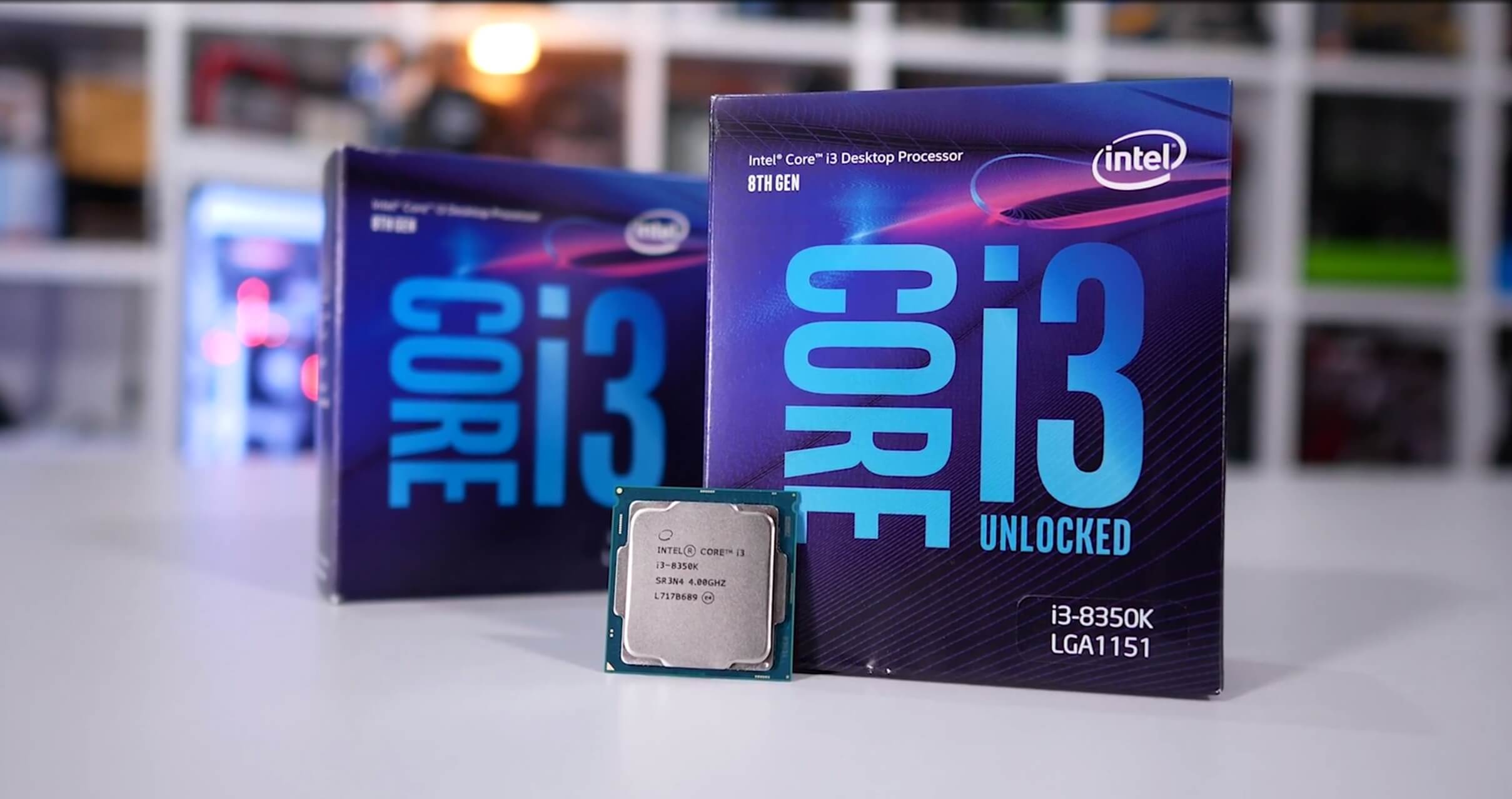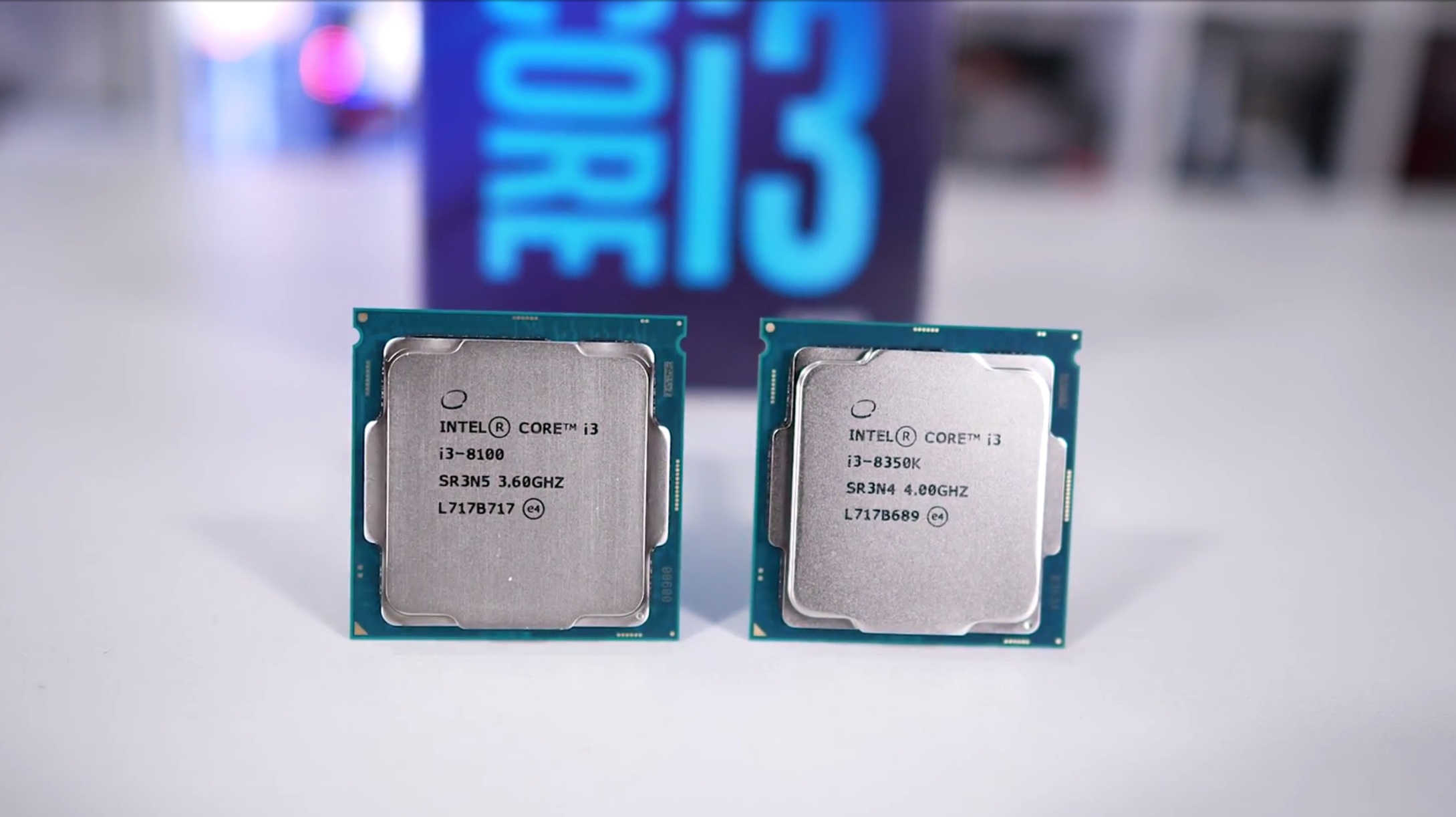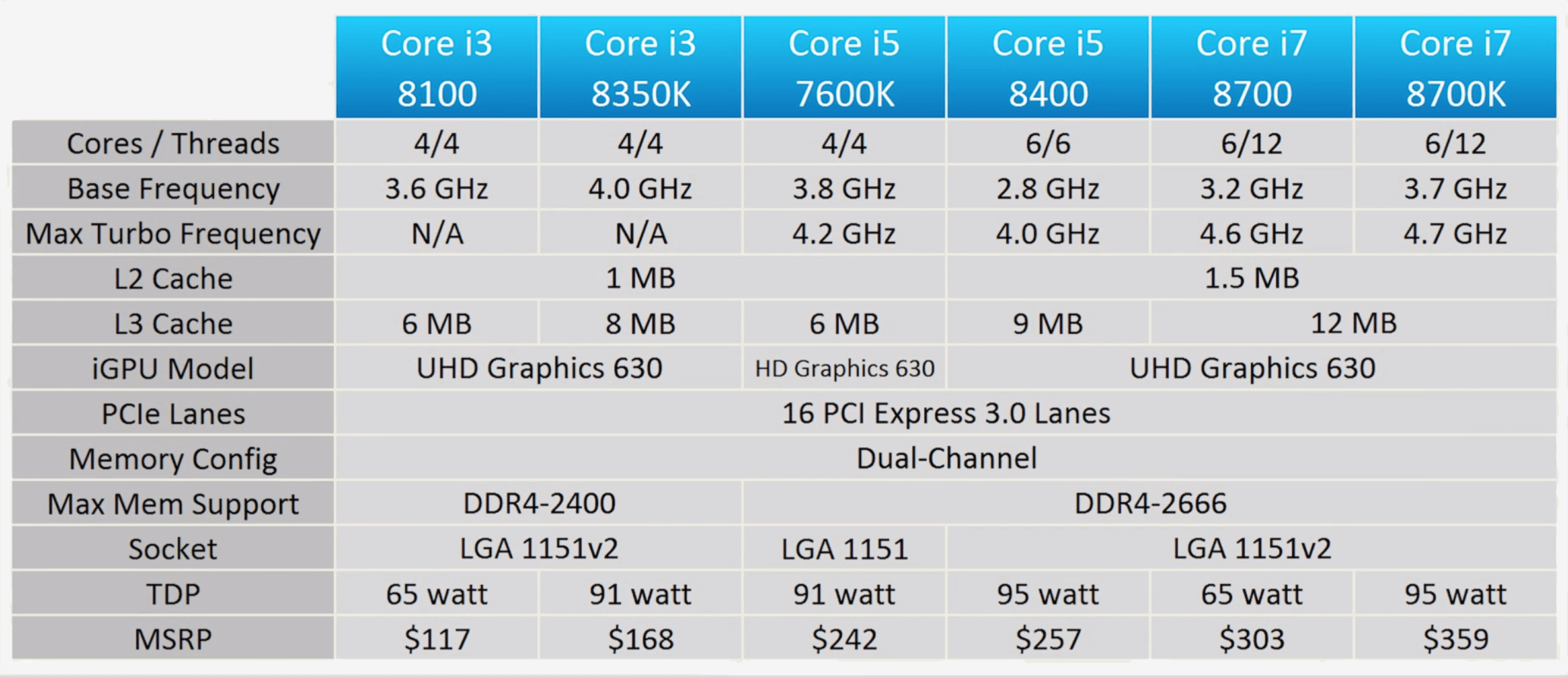Although it's essentially a 7700K with two additional cores and some extra L3 cache, Intel's Coffee Lake-based Core i7-8700K proved to be enough of an advancement over its Kaby Lake predecessor for us to crown it the new gaming king a few days ago.
Nonetheless, we recognize that it may not be an attractive upgrade for existing 7700K owners, not to mention that it's somewhat expensive at $360. With supply being very limited at the moment, buying one this year might be challenging even if you are interested.
With that in mind, we've purchased the more affordable Core i3-8100 and 8350K to see what they have to offer.
For $180 the Core i3-8350K is nearly a rebadged Core i5-7600K: both are 14nm quad-cores operating at ~4GHz, but the 8350K is 25% cheaper and should be faster thanks to a larger 8MB L3 cache. In short, you're essentially getting a little more for a little less with the 8350K.
The Core i3-8100 goes for a much more appealing $120. Although it's locked at 3.6GHz, it should be comparable to the Core i5-7400 or 7500, sporting the same 6MB L3 cache, but roughly 40% more affordable.
Whereas the Core i3-8350K is priced to compete with the Ryzen 5 1500X, the 8100 takes on the Ryzen 3 series. The only disadvantage the locked 8100 part faces right now is the complete lack of budget motherboards. Z370 boards currently start at $120, while B350 boards can be had for as little as $60 or about half the price.
We're also interested to see how the 8350K compares to the Core i5-8400. The six-core 8400 is just $10 more and I think I'd rather have the two extra cores for such a small price increase rather than the ability to overclock, but let's see what the benchmarks have to say...
Coffee Lake System Specs
|
Kaby Lake System Specs |
Ryzen 7 System Specs |
|
Benchmark Time
Memory and Application Performance
First up let's check out the memory bandwidth performance. These DDR4 dual-channel memory controllers look to be good for around 31-39GB/s of memory bandwidth when using 3200 memory.
Since the Core i3-8100 is a locked part, you'll ideally want to feature it on a cheaper motherboard that the Z370 models currently on offer. For now the options are limited so this means anyone buying an eighth-gen Core processors will have to pair it with a Z370 board and with that you have unlocked memory frequencies. On upcoming B360 boards for example you will be limited to DDR4-2400, so I've decided to test the i3-8100 using both DDR4-2400 and 3200 memory.

Here we see when using DDR4-2400 memory the 8100 is limited to a memory bandwidth of 28.6GB/s. Increasing the memory speed to 3200 boosts the bandwidth by 25% and this will no doubt aid performance in a number of games and applications. Meanwhile the unlocked and higher clocked 8350K was tested using DDR4-3200 memory and it managed 36.8GB/s of bandwidth.
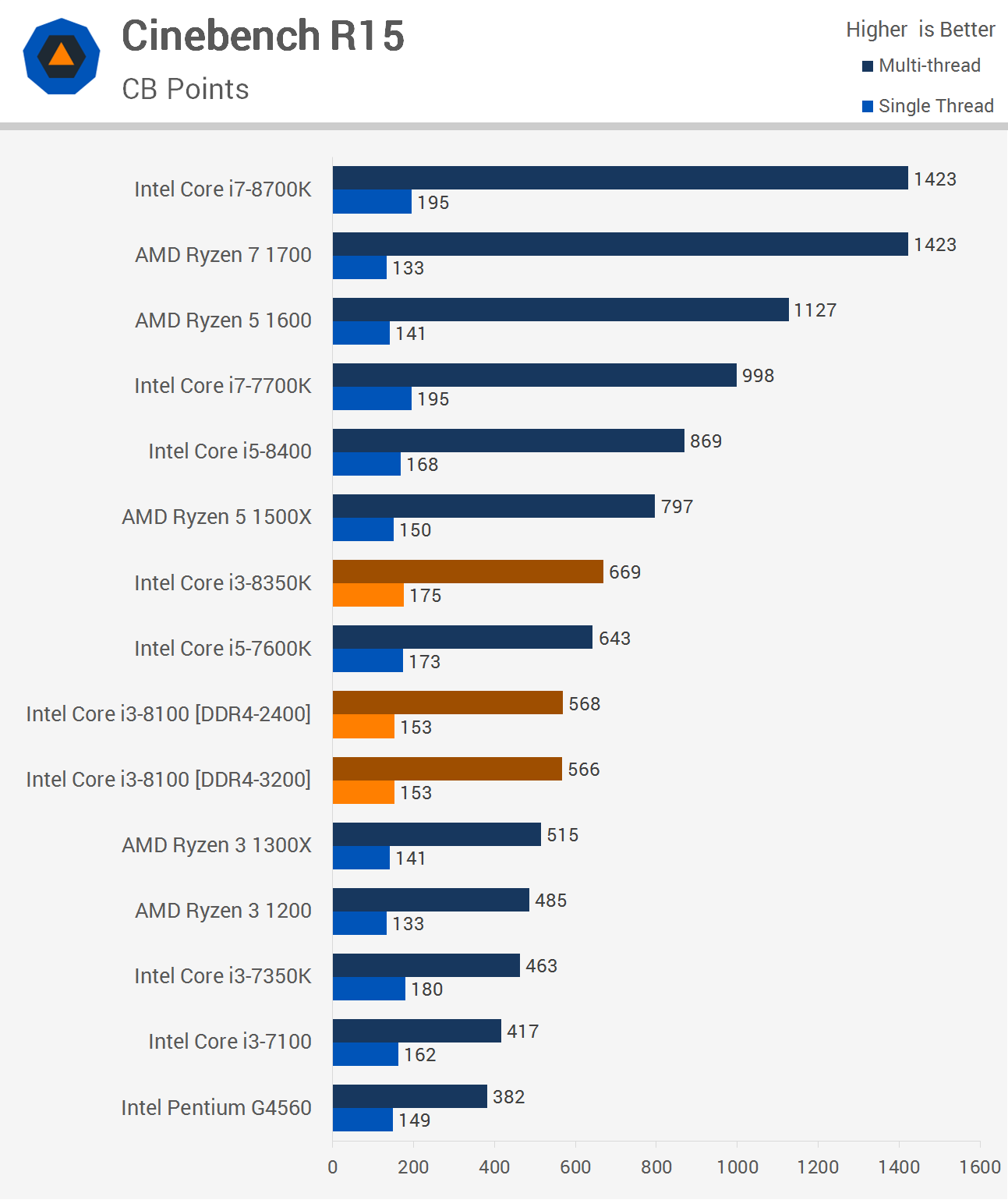
Moving to Cinebench we see that the Core i3-8100 is able to outpace the Ryzen 3 1300X in both the single and multi-threaded tests, so based on this it's going to be a rough ride for the heavily cut down Ryzen series. The 8350K based on frequency should only be around 10% faster than the 8100 but here we see it with an 18% advantage, the only possible explanation being that the 33% increase in L3 cache capacity helps it in this test.
Regardless while it smokes the Ryzen 5 1500X's single thread score it's 16% slower for the multithreaded workload. So based on this I expect the 8350K to punish the 1500X in most games but trail in most of the productivity tests. I should note that the 8350K only just beats the Core i5-7600K while it's 23% slower than the Core i5-8400.
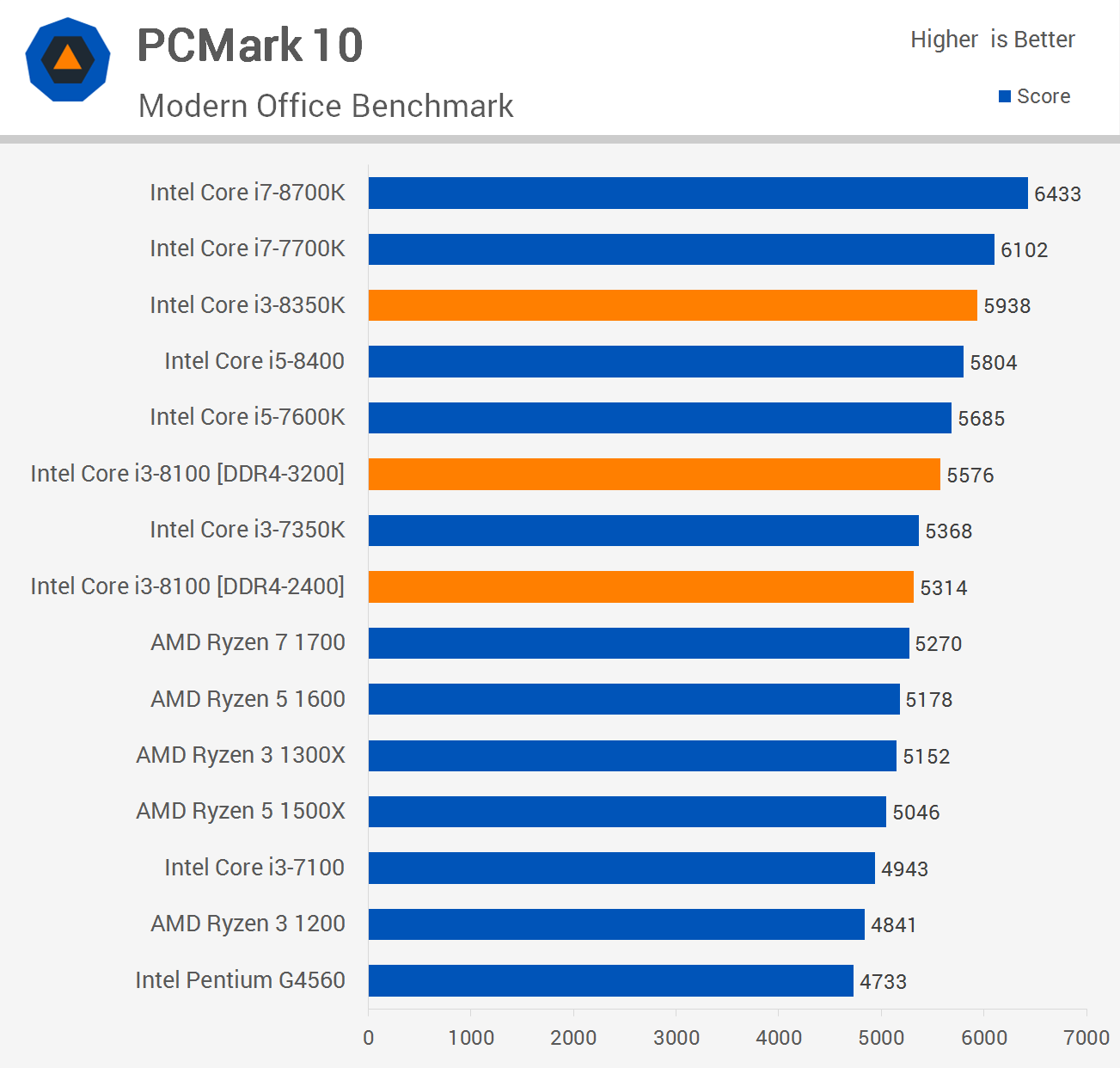
Before we get to that a quick look at the PCMark 10 scores. The 8350K actually manages to outscore the Core i5-8400 here while the 8100 beats both the Ryzen 3 1300X and R5 1500X. The 8100 was 5% faster when using DDR4-3200 memory opposed to 2400, so not a huge margin but a small boost nonetheless.
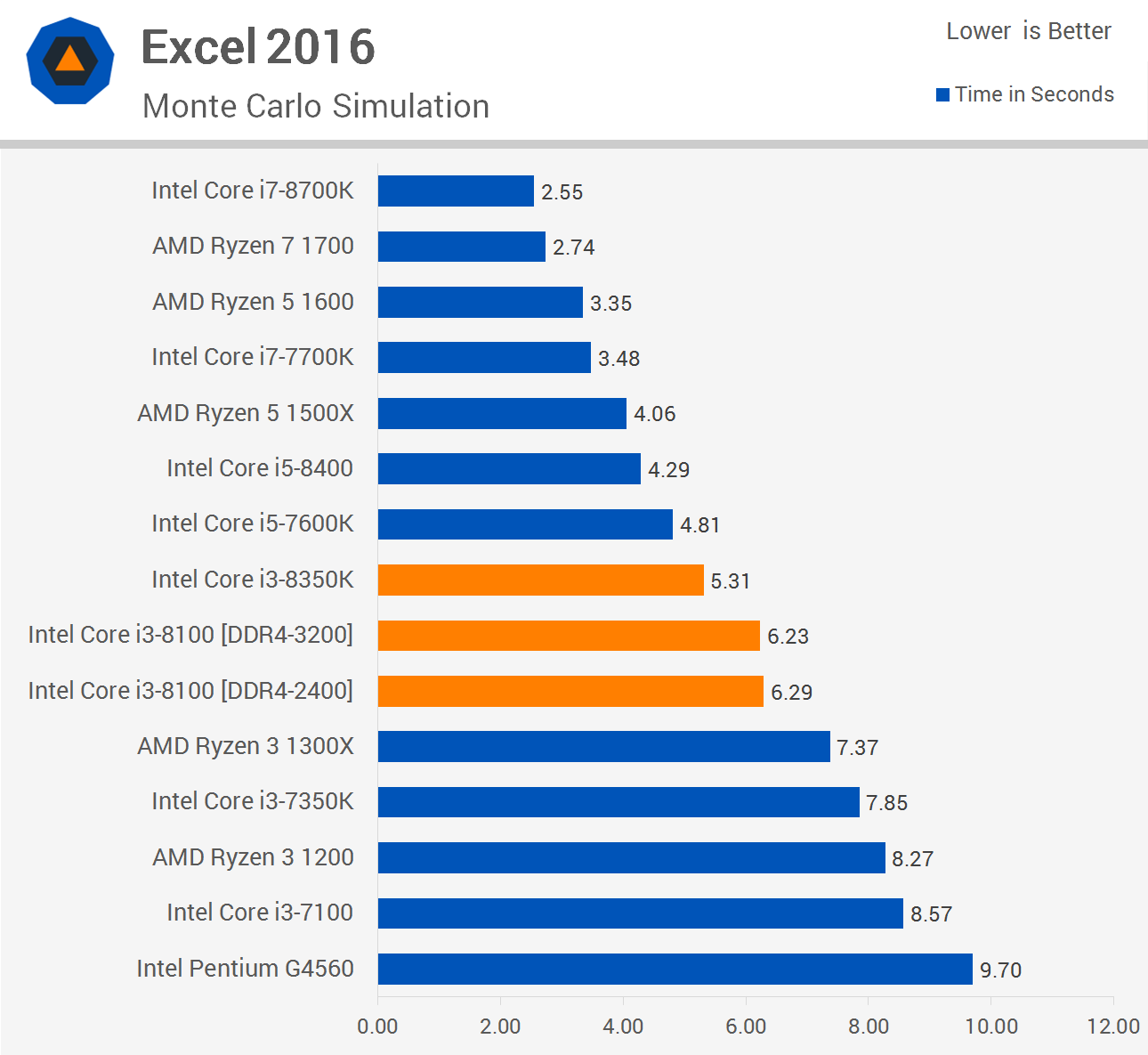
Moving to the Excel Monte Carlo simulation we find that the Core i3-8350K is actually much slower than the Ryzen 5 1500X, 24% slower in fact. It was also 9% slower than the 7600K and 19% slower than the 8400.
The Core i3-8100 has more luck as it was 18% faster than the Ryzen 3 1300X and 26% faster than the Core i3-7350K. It's also worth noting here that the faster DDR4-3200 memory didn't offer the 8100 an advantage in this application.
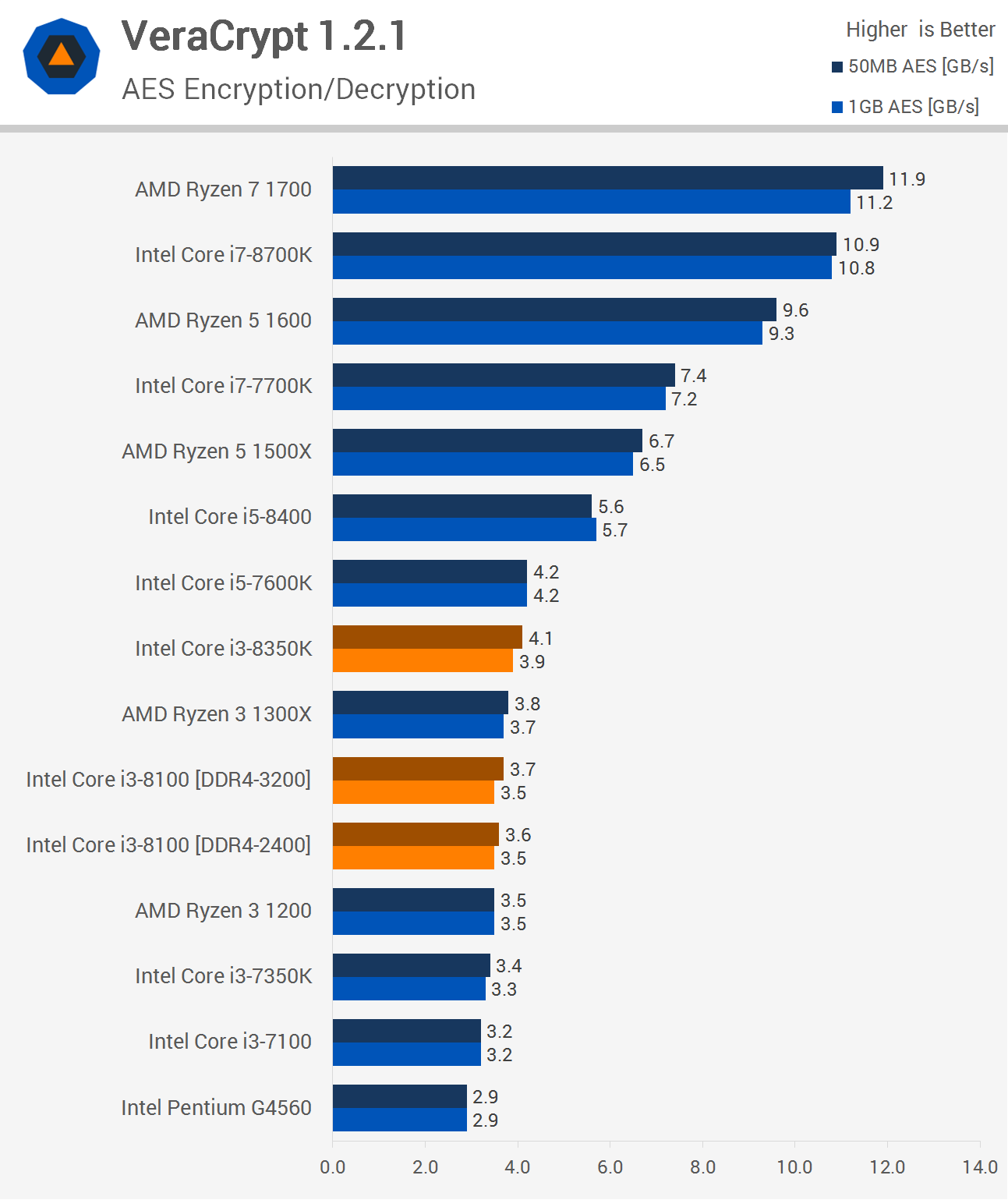
Next up we have the VeraCrypt results and here the Ryzen 3 1300X actually pulled ahead of the Core i3-8100, albeit by a slim margin. The Core i3-8350K roughly matched the 7600K but was 32% slower than the Core i5-8400. That said, it was at least 40% slower than the Ryzen 5 1500X, so the 8350K gets a bit hosed in this application.
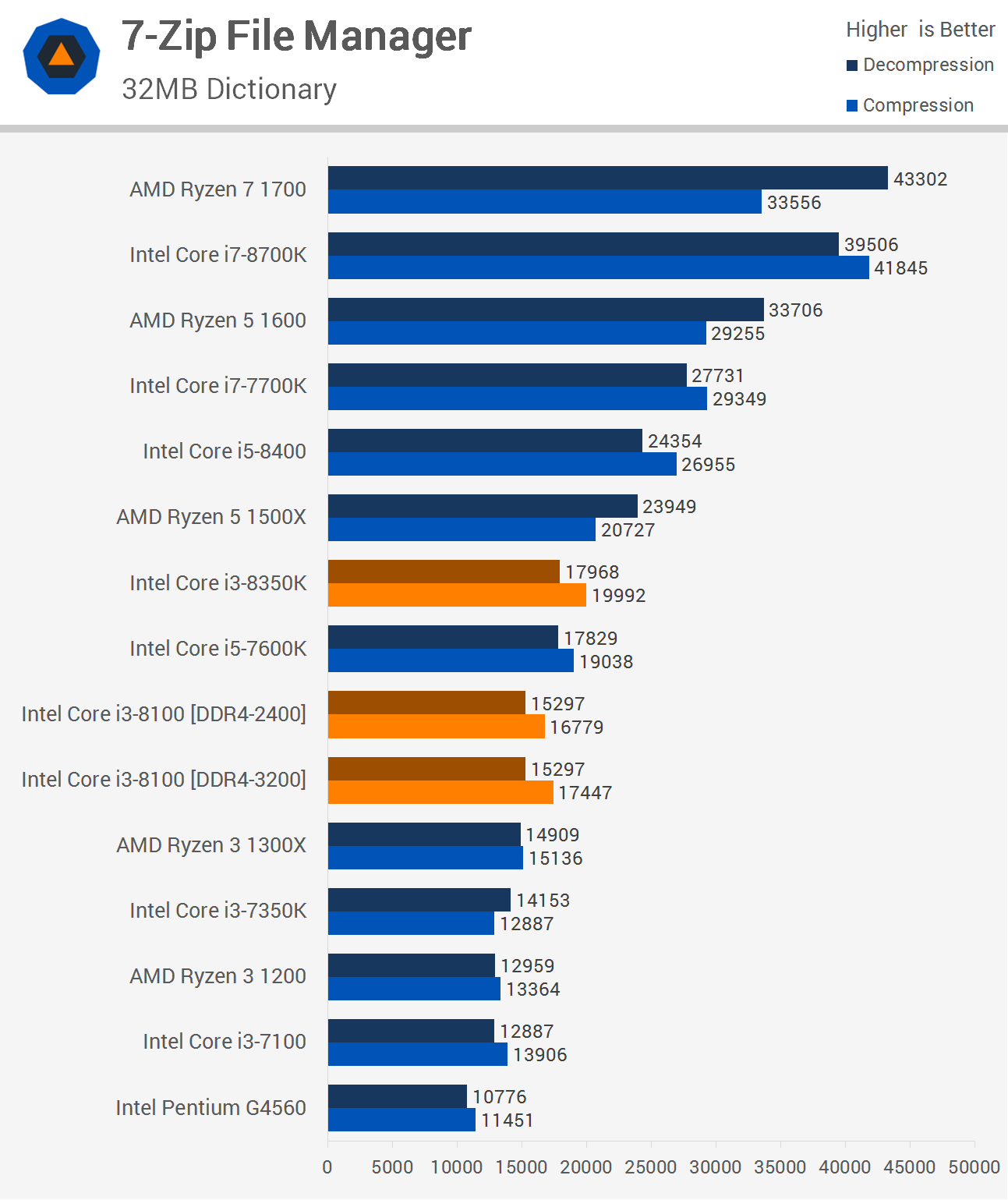
Jumping to the 7-Zip data we see that again the 8350K just can't live with the R5 1500X, although it was only 4% slower for the compression workload, it was 25% when decompressing. The 8350K also gets completely annihilated by Intel's own 8400 as the Core i5 CPU was 35% faster. The Core i3-8100 looks much better and it is able to tackle the Ryzen 3 lineup without much issue.
